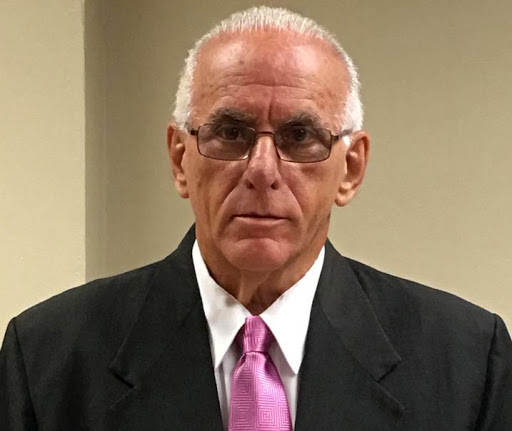By Carlena Knight
Under-fire MP Asot Michael may have been erroneously kicked out of parliament last Friday, according to a regional expert.
“I believe that the Speaker may have over-reached in this matter,” said Dwyer Astaphan, a lawyer by profession and former minister of national security and tourism in St Kitts and Nevis.
Astaphan shared his thoughts via a press release on the issue involving Michael and the Speaker of the House Sir Gerald Watt in parliament.
Michael was asked to leave the halls last week until such time as he is brought before a parliamentary privilege committee for alleged inappropriate actions after Thursday’s proceedings ended.
The decision was taken by Watt on Friday morning’s session, having warned the MP the day before about his outbursts in the House when he rose on a point of order.
Watt claimed that Michael had abused him and Barbuda MP Trevor Walker on Thursday evening.
Michael was invited back to parliament on Monday but with a stern warning that his conduct would be scrutinised. MP Michael however did not attend apparently amid fear of being embarrassed publicly for a second time.
Michael has now made his intent clear to file an injunction against Watt, accusing him of acting outside his legal power.
Astaphan appears to agree, owing to the fact Michael’s alleged abusive behaviour occurred outside the parliamentary session itself.
“The Speaker of the House of Representatives, Sir Gerald Watt QC, has reportedly publicly maintained that he knows what he is doing and that he is without question, right in suspending MP Asot Michael and referring him to a committee of privileges that he has yet to set up,” Astaphan’s statement sent to media said.
“Maybe he does know what he is doing, but I think that he erred when he ejected Mr Michael from the House,” Astaphan said.
“One is not arguing with the Honourable Speaker, who is himself a Queen’s Counsel. However, one is wondering just how this situation with MP Michael is different in essence from the 1999 Dominica Court of Appeal Case of Sabaroche v Speaker of the House of Assembly of Dominica.”
In that case, Justice of Appeal Albert Redhead said “offensive and insulting or disrespectful language could be regarded as objectionable or unparliamentary expressions”, and once a member uses such language and upon “being called to order by the Speaker, refuses to withdraw the words or expression or to explain them and has not offered an apology for the use thereof to the satisfaction of the House, he may be proceeded against and dealt with as though he or she had committed an offence ……. that is to say his/her conduct will be regarded as gross misconduct and he/she will be asked to withdraw from the House during the remainder of the sitting.”
However, Astaphan said standing orders governing Eastern Caribbean countries’ parliaments only relate to behaviour and expressions during proceedings in parliament, not afterwards.
He said the standing orders are to be applied only to ensure the proper running of the business of parliament, not to punish members because the Speaker might have been involved in a robust verbal exchange with a member, each in his private persona and not as members of parliament sitting in, and governed by, parliamentary protocols.
A Speaker should not suspend a member before asking him to apologise – and then only if he refuses to apologise or retract his offending words can a Speaker lawfully suspend them, Astaphan claimed.
“Respectfully, I believe that the Speaker may have over-reached in this matter, and Mr Michael could be rightly aggrieved, and his constituents disappointed that he was deprived of his parliamentary time. Or is it that wrong is now right today because we or somebody don’t like Asot Michael at this moment?” he asked.
Observer media reached out to Sir Gerald Watt for a response. Watt said he would be releasing a detailed official statement on the matter later this week.

